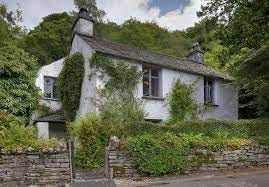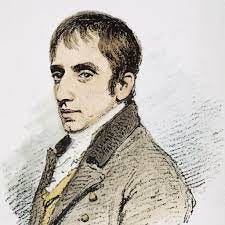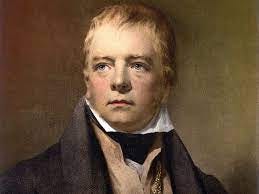Tragedy of the two Dorothies
Far from life in Grasmere being a rural idyll, William Wordsworth’s relentless demands damaged the lives of the women in his household
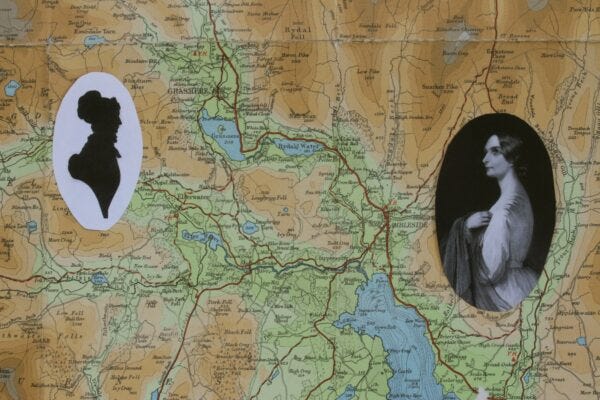
We imagine the Wordsworths existed in a cosy rural idyll at in Grasmere. It wasn't like that. For one thing, the former pub was tiny, damp, cold and reeked of tallow candle smoke. William described the regime there as “plain living and high thinking.”
Two of Wordsworth’s five children died there, his brother was drowned at sea and, as we shall see, his sister suffered a mental breakdown. Life was especially tough for the Wordsworth women who battled poverty, illness and overwork to support the narcissistic William.
Their eight years at Dove Cottage were triumphantly productive for Wordsworth. He produced his greatest poetry in this period. But while they made an immense contribution to enabling his achievement, the female members of the household struggled to carve out meaningful lives for themselves amidst his relentless demands that the household should revolve around his needs, including help with transcribing his manuscripts. The women faithfully copied thousands of lines on hundreds of pages, pulling together the scattered drafts into beautiful, handwritten volumes. Dora faithfully took over as chief amanuensis after Dorothy’s health and eyesight failed.
Dorothy Wordsworth's all-consuming love for her brother forced Mary, his wife, to compete for her husband's affections for more than 40 years. Yet Dorothy, a perceptive critic and editor of William’s poems, was an outstanding writer in her own right. William depended on her observations for poetic material, but she ended her days an opium-addicted wreck, broken by the seething, unspoken emotions of the Wordsworths' strange ménage a trois.
For William’s second child but eldest daughter, the legacy of genius was equally destructive. William evolved from being a revolutionary hippy to an authoritarian Victorian patriarch.
He had his daughter Dora packed off to boarding school at the age of four to learn to become "useful" to the family, squashing her intellectual precociousness.
The ordeal of the two Dorothies began with Dorothy's birth on Christmas Day 1771 at the grand grace and favour house the Wordsworths lived in on the Main Street in Cockermouth.
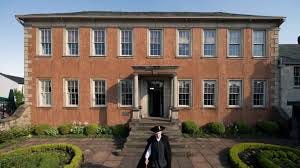
Their father John was Tory party agent for England’s richest commoner, the powerful, miserly and unstable "Bad Earl" Sir James Lowther. John was perpetually away from home implementing the often doubtfully legal political chicanery that won “Wicked Jimmy” control of nine MPs in Parliament and the sobriquet “Tyrant of the North.”
Their mother was Ann Cookson Wordsworth of the Penrith drapers' dynasty. Dorothy was a nervous, sensitive child always bursting into tears. She was very close to the morose William. The pair were the least liked of the Wordsworth siblings.
But the source of their distress was unsurprising given the at times terribly strained atmosphere of the household. Their mother died unexpectedly of pneumonia aged only 31 in mysterious circumstances that suggest a deeply unhappy marriage. She abruptly left the children with her parents in Penrith one day and went off to London on her own where she became ill, returned to Penrith and died.
John was distraught. He despatched the boys to boarding school and Dorothy, then aged seven, was bundled off to live in Halifax with one of her mother's cousins, Elizabeth Threlkeld, a very loving woman who gave her an excellent education in the rigorous ultra-rational Unitarian tradition.
When John died six years later after losing his way and spending a cold stormy night in the open Lowther refused to pay his back wages. The family was broke. The tyrannical Lowther evicted them. Dorothy was sent with her brothers to the grudging Cookson grandparents. Meeting again as teenagers, William and Dorothy went through a strange kind of falling-in-love experience, a circumstance known as "genetic attraction" very familiar to social workers who reunite families. Unfortunately for Dorothy, her infatuation with William was to last a lifetime.
Brother and sister took up residence at Dove Cottage in 1799. One powerful factor contributing to the pressure-cooker family atmosphere there was the so-called “conduct” book Dorothy was given as a gift when a child. It was called "Dr Gregory's A Father's Legacy to his Daughter." The book's aim was to "train girls to be a fit companion for a man of sense" and make her "agreeable and useful." In other words to be subordinate to men. This contributed to Dorothy’s tendency to worship William and William’s rather dim eldest child John, while bullying and devaluing William’s clever daughter Dora, born in 1804,
“People think Dorothy (Dora) is far cleverer than John - but that's a mistake,” Dorothy wrote. “She is proud and not unwilling to display what she can do." Dorothy added that Dora, had to be imprisoned regularly in order to punish her.
Dora's wit and forwardness undermined her brother's confidence at the local village school. She clearly had literary talent, but it got crushed because Wordsworth believed men should be the superior sex. William decided she had to be removed to a boarding school in Appleby to stop her over awing the feeble John. Two of Dora's siblings - Catherine and Thomas - died while she was away. But when she was brought back she was not given any comfort or explanation of their deaths.
An irritated Wordsworth wrote how on his departure from Appleby after a visit Dora had clung to his trousers, weeping. The Wordsworth remedy was to visit Dora less.
Sent to another boarding school in Ambleside, within easy walking distance of Dove Cottage, she was still not allowed to come home at weekends. Dora probably contracted tuberculosis at this school and her weight plummeted with anorexia nervosa.
As a result of these experiences, Sir Walter Scott, a family friend who visited Dove Cottage (and climbed out of the window early one morning to seek a decent breakfast at a local coaching inn) noted that Dora never completely grew up and remained a kind of child woman
She met a deeply depressed man called Edward Quillinan, a neighbour of the Wordsworths, a translator of Portuguese poetry with two children, whose wife died when her nightgown caught fire.
Dora became a surrogate mother to his children. They wrote letters to each other. He was her "very silly Mr Quilly." As Dora's crush on Quillinan grew, and the widower became entranced with her, Wordsworth's anger at her defiance overflowed. He dismissed the relationship, decreeing that Dora should devote her life to looking after him.
In case there is any doubt about the family’s house moves, in 1811 William Wordsworth and his family moved to the Old Rectory, opposite St Oswald’s Church in Grasmere. This was a cold and damp house and where William and Mary’s two youngest children died. In 1813 William and Mary moved to Rydal Mount, where they stayed until their deaths in 1850 and 1859.
—
This is a small, selected extract from a book called Huge & Mighty Forms which is on sale at The New Bookshop, Main Street, Cockermouth as well as Bookends in Keswick and Carlisle along with Sam Read in Grasmere.
My latest book is Secrets of the Lost Kingdom.




